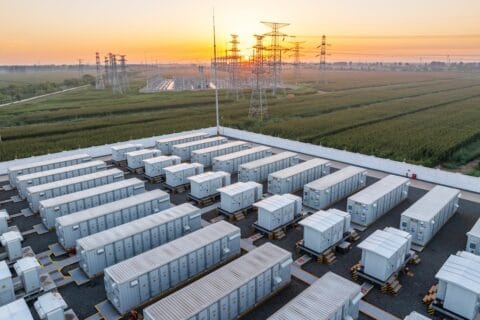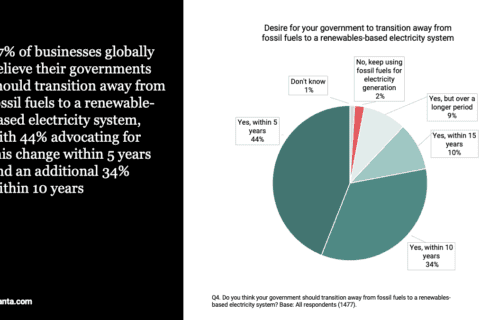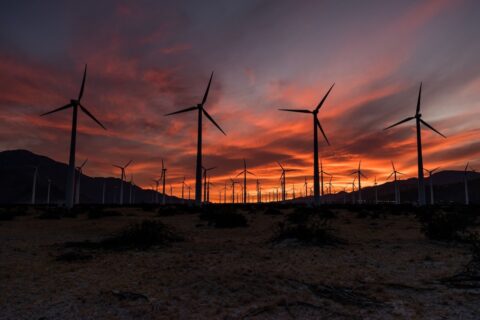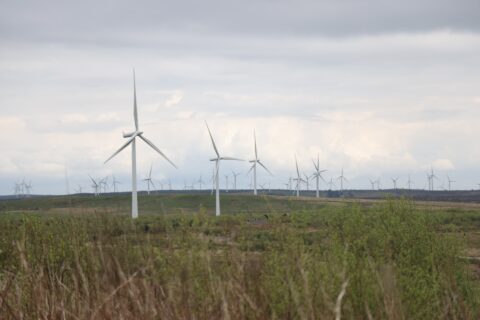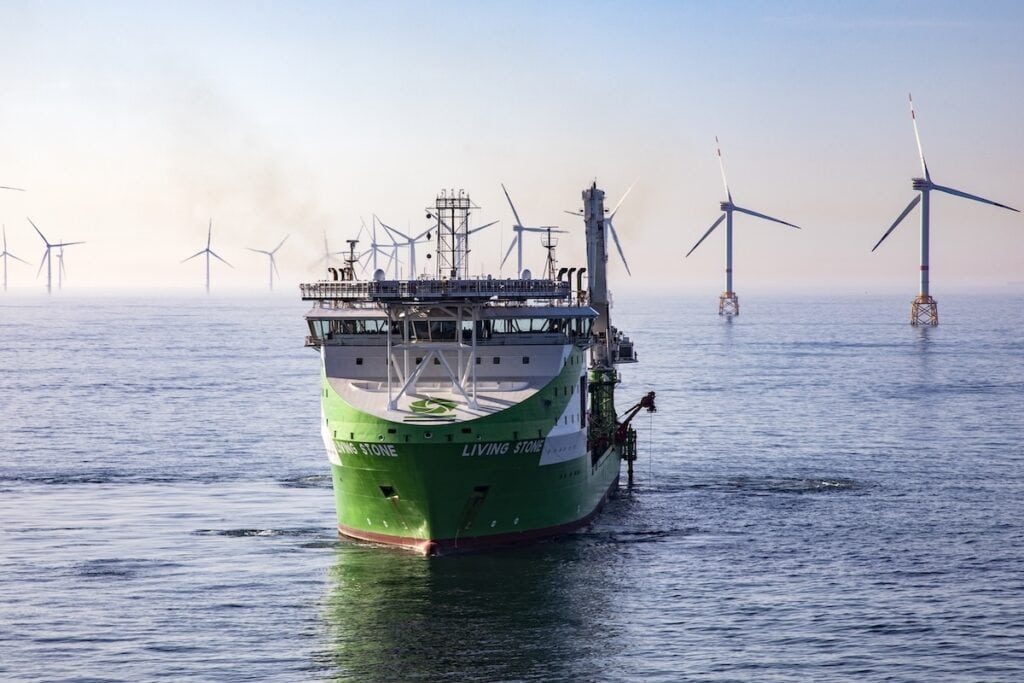
Marine contractors tasked with building and maintaining offshore infrastructure warn a lack of regulatory support for investment is putting climate goals and energy security at risk in the UK and Europe.
Europe’s ambition to install 300-400GW of offshore wind by 2050 cannot be realised without scaling-up the marine contracting sector. Climate goals are at risk without investment in the offshore construction fleet that builds, installs, and maintains the infrastructure powering the clean energy transition.
The sector also plays a critical role in underpinning European security, by protecting energy supply, interconnector, and telecoms infrastructure, so boosting resilience at times of volatility. Under-investment would leave Europe exposed to energy price shocks and vulnerable to geopolitical and security threats.
These are the implications of a new first-of-its-kind economic and social impact report commissioned by the International Marine Contractors Association (IMCA), and conducted by PA Consulting.
The report shows the marine contracting sector delivers €80bn in economic value and supports nearly half a million jobs across Europe — doing vital work on offshore wind, subsea cables, and interconnectors.
The study also highlights mounting risks: without long-term regulatory certainty and investment in ships, ports, and crews, the sector will not be able to deliver the 10,000 offshore wind turbines needed by 2050.
Alignment between government and industry is the missing link, says Iain Grainger, CEO of IMCA:
“Europe’s energy transition depends on the capabilities of marine contractors — and our members are ready to partner with EU policymakers to deliver it. However, we need joined-up thinking and long-term policy certainty to scale up capacity and meet future demand. The sector is ready — but it cannot do this alone.”
Sector remains under-recognised
This is the first comprehensive study into the economic and strategic role played by marine contracting. It provides a detailed picture of a sector that remains under-recognised — despite being central to Europe’s clean energy plans — while also highlighting a growing tension around future wind energy targets.
Covering the EU27, UK, and Norway, the report finds the marine contracting sector is expected to generate more than €45bn in direct gross value added (GVA) in 2025 and support over 220,000 direct jobs. GVA-per-worker in the sector is more than 2.5 times the European average, highlighting its high-value impact.
Including indirect and induced impacts, PA Consulting estimates the marine contracting sector will provide more than 490,000 jobs, and €80bn in GVA in 2025. It also contributes over €15bn in taxes annually.
The sector plays a critical role in improving energy security by reducing Europe’s reliance on imported fossil fuels. Between 2025 and 2030, offshore wind installations have the potential to offset up to 3,100 million tonnes of CO2e — equivalent to removing more than 650 million cars from the road for one year.
Overall, marine contracting is responsible for installing and maintaining offshore energy infrastructure, not just wind turbines.The sector works laying subsea cables, deploying power interconnectors, and enabling carbon capture and storage (CCS). It decommissions ageing infrastructure, and safeguards critical assets.
Industry capabilities go beyond vessels alone. Services on offer range from remotely operated vehicles (ROVs), via advanced diving operations, to survey and trenching equipment. The sector also provides highly specialised engineering teams able to operate in the world’s most challenging offshore environments.
Heavy lifting to meet wind targets
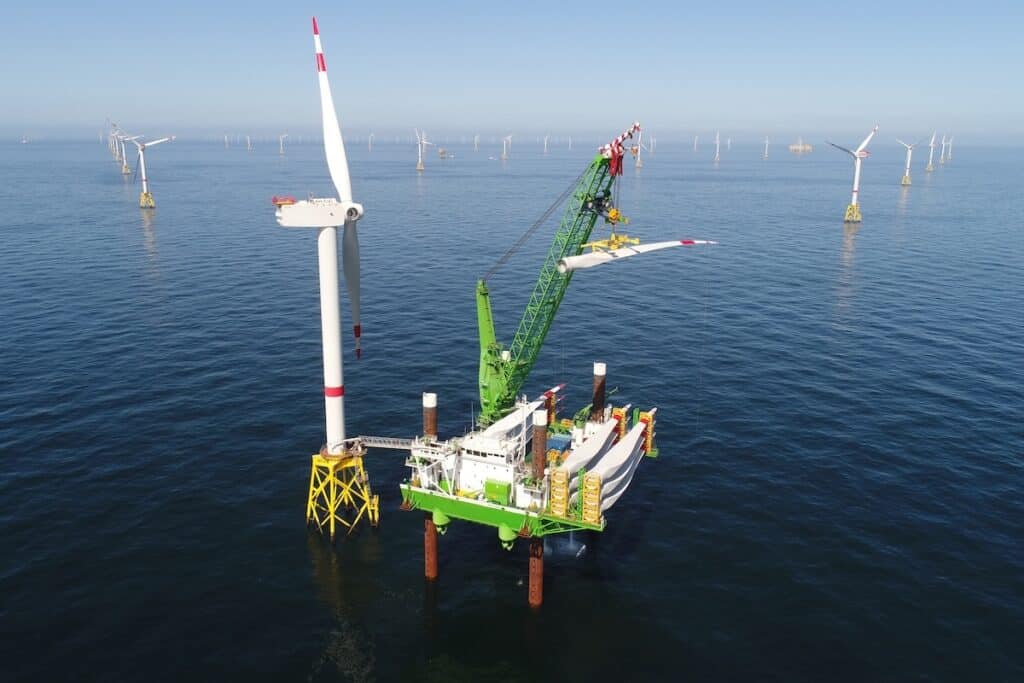
To meet 2050 offshore wind targets, Europe will need to deploy more than 10,000 offshore wind turbines.
With the right commercial and regulatory environment, this is doable. Marine contracting has potential to enable installation of enough turbines to meet offshore wind capacity targets in the EU, UK, and Norway.
However, this demands a rapid and unprecedented expansion and scale-up of heavy-lift vessels, specialist equipment, and trained offshore crews, as well as upgraded port infrastructure.
This is not happening at present — not at anything like the scale and speed needed to guarantee success.
Each heavy-lift ship currently takes four to six years to build, but few such vessels are on order. Fleet shortages, fuel regulation uncertainty, and delayed investment decisions leave the sector unable to scale.
When a vessel might last 20 years or more, companies need long-term policy certainty before they commit.
This is especially true the regulatory context is evolving fast with such as the EU emissions trading scheme (ETS) and IMO net zero framework for shipping, suggests Lee Billingham, IMCA Director of Strategy:
“Marine contractors are ready to invest, but you can’t green-light a €250M to €3bn vessel when regulators are pushing rapid decarbonisation without clarity on which fuels will be available or where. Port access, fuel infrastructure, and regulatory alignment all need to move in sync.”
There is also a danger of inaction placing Europe at a competitive disadvantage, warns Billingham:
“If Europe doesn’t act soon, others will. Additional capacity will be needed globally, but growing Europe’s own capability is vital for strategic autonomy and resilience — ensuring the energy transition delivers jobs and value here at home.”
Call for clarity and consistency on policy
IMCA commissioned the economic impact report to inform the drafting and roll-out of several EU initiatives, including the Action Plan for Affordable Energy, Action Plan on Cable Security, European Ocean Pact, EU Ports Strategy, EU Industrial Maritime Strategy European Grids Package, and review of the EU ETS.
IMCA will use these initiatives to engage and brief policymakers on the urgent need for:
- Designation of marine contracting as being of strategic importance, recognising its role in providing and maintaining critical infrastructure;
- Targeted investment incentives to accelerate new vessel builds, modernise existing fleet capacity, and expand port infrastructure — including EU-supported financing tools, state aid alignment, and priority access to funding streams such as CEF and the Innovation Fund;
- Aligned training and visa frameworks for skilled offshore labour; plus
- A strengthened European offshore supply chain — including evaluating future shipbuilding and vessel integration capacity to meet growing demand and retain high-value activity within the EU.
The report brings the economics into focus, says Alon Carmel, energy transition expert at PA Consulting:
“Our study finds the economic contribution of marine contracting to the wider European economy is highly significant — more than 220,000 direct jobs and €45bn in direct GVA. The sector plays a critical role installing and maintaining offshore energy infrastructure for net zero investments, as well as telecoms cables vital to our data-driven economies.”
Bringing multiple benefits, the sector forms a vital part of the industrial base in Europe, concludes Grainger:
“Marine contractors are at the frontline of the green transition. Our sector already delivers tens of billions in value and hundreds of thousands of skilled jobs. Yet Europe’s energy security and climate goals demand we build more, and fast.
“To meet that challenge, policymakers must recognise marine contractors as key providers of strategic infrastructure. We need clear, consistent support for new shipyards, cables and crews, or risk falling behind.”
Construction, installation and maintenance
The International Marine Contractors Association (IMCA) is the leading trade association for the offshore marine construction industry worldwide. With over 800 member companies in 65 countries, it represents the vast majority of marine contractors, as well as energy companies, national regulators, and the supply chain.
As well as operating in oil and gas, IMCA members play a key role in the offshore renewable energy industry through the construction and installation of wind farms, together with ongoing maintenance of these assets.
To improve safety, efficiency, and performance within the marine contracting industry, IMCA works to develop industry-recognised technical standards and benchmark codes of practice. Disciplines covered include diving, dynamic positioning, lifting and rigging, offshore survey, and remotely operated vehicles.
Further Reading:
- More about the International Marine Contractors Association (IMCA);
- Download the Executive Summary for the new Economic and Social Impact Assessment;
- More on the producers of the report for the IMCA, PA Consulting;
- More on EU strategy for offshore renewable energy, targets and goals;
- More about the EU emissions trading scheme (ETS);
- Also on SustMeme, Net zero regulations agreed for shipping worldwide;
- Also on SustMeme, First guarantee for traceability of green hydrogen;
- Also on SustMeme, Scotland green-lights floating offshore wind farm;
- Also on SustMeme, Green berthing area for Port of Hamburg moors ships off-grid;
- Also on SustMeme, First hybrid crew transfer vessels for UK offshore wind farm;
Check out the full archive of stories on the SustMeme Climate & Energy Channel, now available to Sponsor.


